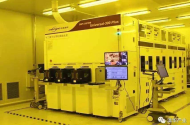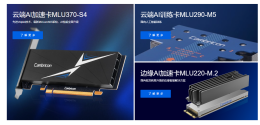Via google translate:
"A former Samsung employee was arrested by Chinese police on suspicion of leaking Changxin Storage-related information to South Korea!"
"According to Chosun Ilbo, KCNA and other media reports, the South Korean Embassy in China said on October 28 that a 50-year-old South Korean man named A was detained by Chinese police in December last year on suspicion of "leaking Chinese semiconductor information to South Korea" on the charge of "espionage." This is the first case of a South Korean being arrested under the revised Anti-Espionage Law since it came into effect in July last year."
"
According to Chosun Ilbo, KCNA and other media reports, the South Korean Embassy in China said on October 28 that a 50-year-old South Korean man named A was detained by Chinese police in December last year on suspicion of "leaking Chinese semiconductor information to South Korea" on the charge of "espionage." This is the first case of a South Korean being arrested under the revised Anti-Espionage Law since it came into effect in July last year.
According to the report, A currently lives in Hefei, Anhui Province, works at a local semiconductor company, and lives with his wife and two daughters. He worked as an ion implantation technician at Samsung Electronics' semiconductor department for more than 20 years. He moved to China in 2016 and joined China's largest memory chip manufacturer Changxin Memory Technologies (CXMT), when Changxin Memory Technologies first recruited 10 Korean semiconductor professionals. After leaving Changxin Memory Technologies, he worked at two other Chinese semiconductor companies."
"On December 18, 2023, investigators from the Hefei Municipal State Security Bureau arrested Mr. A on charges of “ espionage ” and interrogated him in isolation at a local hotel for more than five months before being transferred to detention by the procuratorate in May 2024. He has been held in a detention center in Hefei since May 26 and is expected to stand trial in November 2024."
"The Hefei Municipal National Security Bureau suspected that A leaked information related to Changxin Storage's semiconductors to South Korea while working at Changxin Storage. A insisted that he had not been exposed to any core semiconductor technology in China.
According to the information, China's newly revised "Counter-Espionage Law" came into effect in July 2023. The revised "Counter-Espionage Law" expanded the scope of espionage activities from "stealing state secrets and information" to include provisions for the transfer of any documents, data, materials and items related to "national security and interests", even if they are not state secrets."
"If A is sentenced to prison in a subsequent trial, he would become the first South Korean to be punished under China's Counterespionage Law. No South Korean has been convicted under the law since it was first enacted in 2014. However, trials for espionage crimes in China usually take several years, and it is not uncommon for specific sentences to be 3-10 years or more."
"An official from the South Korean Embassy in China said, "We have been providing consular assistance to Mr. A and his family since we learned of his detention in January this year."
Chinese Foreign Ministry spokesman Lin Jian responded at a regular press conference on October 29 that a South Korean citizen was arrested by relevant Chinese agencies on suspicion of "espionage". The relevant content has been reported to the South Korean Embassy in China through consular notification, and necessary work assistance has been provided to embassy staff."
"Lin Jian stressed that as a country ruled by law, China investigates and punishes illegal and criminal activities in accordance with the law, while also safeguarding the legal rights of the parties involved.
It is worth noting that according to a report by South Korean media in December 2023, the South Korean Prosecutor's Office arrested two former Samsung Electronics employees who returned to South Korea from China on suspicion of violating South Korea's "Prevention and Protection of Industrial Technology Leakage Act", accusing them of leaking Samsung's 16nm DRAM technology secrets to Chinese manufacturers. In another case, Cui, a former executive of Samsung and SK Hynix, was arrested on suspicion of trying to use stolen Samsung DRAM technology to build a factory in China."
"Lee Jae-min, a trade expert at Seoul National University, said: "Competition between China and South Korea in the chip sector is intensifying. Although South Korean companies such as Samsung and SK Hynix still maintain a technological advantage over China in advanced memory chips, the gap is narrowing. We may see more such industrial espionage cases involving the two countries, especially in the high-tech field, as they both regard semiconductors as a key industry for national security.""
is this news real???


